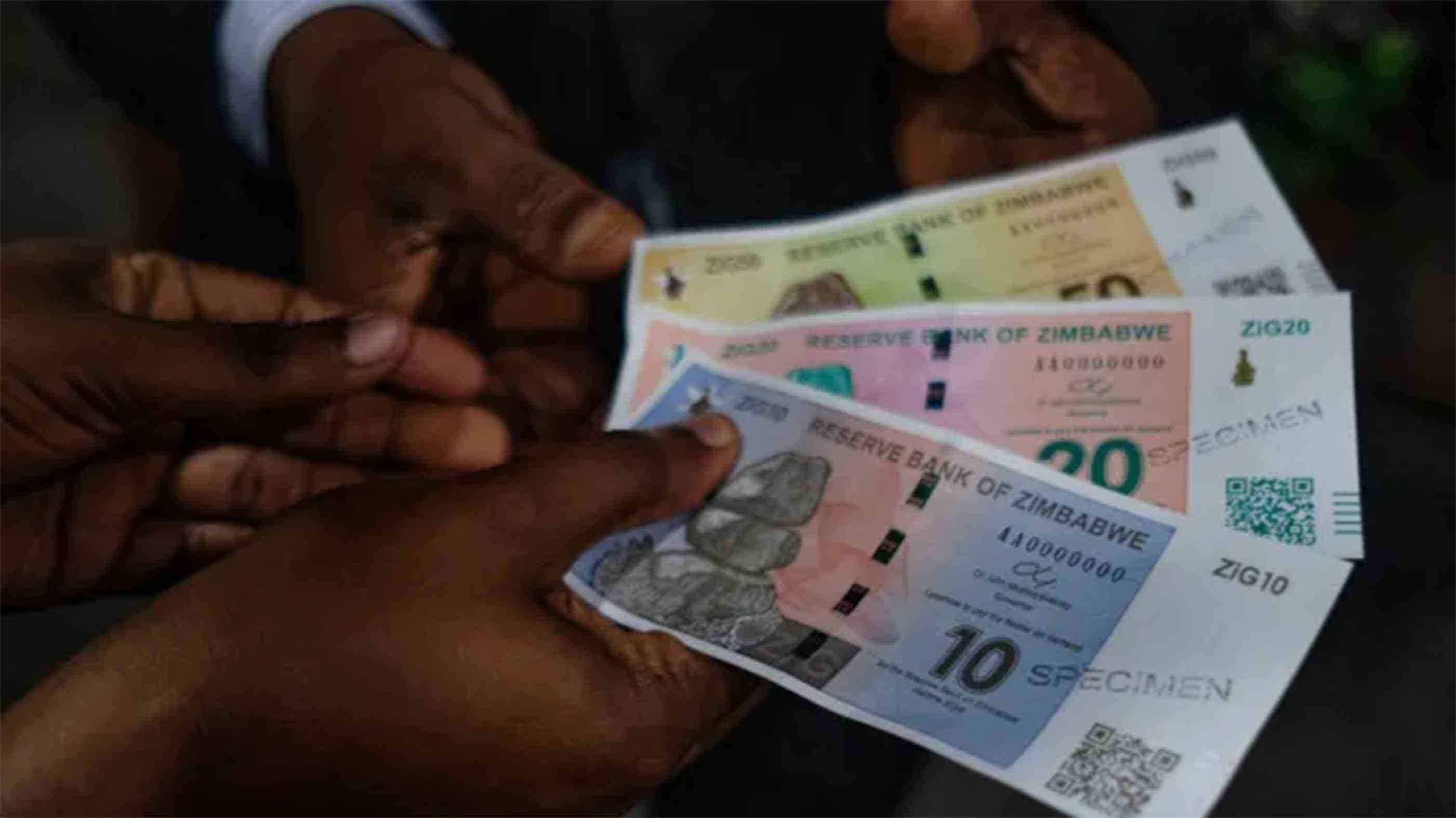
Go into a mobile phone shop today and see if you will walk out with a brand new iPhone or any other smartphone using the ZiG.
Drive to any service station in Zimbabwe and see if you will have your car tank filled using those ZiGs in your bank account.
In fact, with approximately 70% of all retail purchases in the country done through the informal sector (the so-called “cash shops”), who will buy anything using those ZiGs in one’s EcoCash or OneMoney e-wallet?
In other words, in a country where there is currently no local currency hard cash (with the ZiG not yet out in notes and coins) and some products sold exclusively in US dollars, it only makes sense that most Zimbabweans will flock to the parallel foreign exchange market for the precious greenback.
Let us also remember that ordinary citizens prefer the streets as there are less hassles and red-tape, thereby guaranteeing access to US dollars — in stark contrast to banks and bureaux de change.
This increased demand (with restricted supply) of the greenback on the black market, in turn, naturally increases its value on the streets, thereby weakening the barely four-week-old local currency.
Of course, common sense dictates that since this high demand for the US dollar is largely on the streets, as opposed to the formal market, the parallel market rate will be much higher and will likely continue to rise.
This preference for the black market rather than banks and bureaux de change is on account of the already stated easy access and availability of the greenback, which is not the case in official channels.
- Mavhunga puts DeMbare into Chibuku quarterfinals
- Bulls to charge into Zimbabwe gold stocks
- Ndiraya concerned as goals dry up
- Letters: How solar power is transforming African farms
Keep Reading
The question then becomes: Whose fault is it that we do not have ZiG notes and coins, which would have enabled relatively easy trade even in the so-called “cash shops”?
I can add another one: Who is to blame that some products and services, such as fuel and even passports, are charged exclusively in US dollars?
A direct question is: Whose fault is it that the parallel market exchange rate is now hovering around ZiG21 to US$1 while officially it is ZiG13,50 to US$1?
Who is really driving up the exchange rate on the parallel market?
The answer to these questions is quite simple: It is the government of Zimbabwe!
Surely, what reasoning was there when the Emmerson Dambudzo Mnangagwa administration decided to ambush the nation with a new currency on April 5, 2024 yet without the necessary notes and coins on the ready?
Would it not have been the normal thing for the RBZ (Reserve Bank of Zimbabwe) to announce the ZiG with the required noted and coins already on their way to banks throughout the country?
That way, Zimbabweans would have had hard cash in hand the very next day to do their purchases — especially at “cash shops”, which, as previously mentioned, constitute over 70% of all retail trade in the country.
Without any cash, most citizens were — and still are, since there are still no notes and coins three weeks later — forced to change their electronic ZiG on the streets.
The only electronic money transactions possible since the introduction of the ZiG are those in the formal economy, such as buying electricity, paying toll fees, and buying in major supermarkets.
This, however, is only a small portion (about 30%) of all business transactions in Zimbabwe.
Furthermore, both ordinary citizens and the business sector should have been given ample time to prepare and adjust to the new currency well before it was actually operationalised.
What we witnessed in the first week or two after the ZiG was introduced was utter chaos and a circus — with most electronic platforms down, virtually bringing business to a standstill.
Even the Zimdollars in our bank accounts and e-wallets were immediately rendered useless as financial institutions scrambled to convert these balances to the ZiG.
Businesses and State institutions similarly had to shut down their vending systems in order to reconfigure them to recognise the local currency.
That convoluted process — with some business systems still facing challenges today — contributed immensely to people resorting to the black market for hard cash.
As a matter of fact I remember that day (April 5) so well — since this is when I had been invited for a one-on-one lunch meeting by the ambassador of a top European country in the capital Harare.
However, on my way back to my home in Kwekwe on April 7, the money in my bank was no longer usable — forcing me to look for cash for toll fees.
This is the untenable situation in which most Zimbabweans found themselves.
Again, this helped in driving up the parallel market exchange rate as people desperately needed cash.
But why is the rate going up only on the streets and not the official foreign currency market?
Well, it goes without saying that where the demand for a commodity is higher, its price goes up.
For instance, if, for some reason, bread at supermarket A is in high demand yet very few people are interested in bread from supermarket B, the price at supermarket A will go up as compared to supermarket B.
The same simple logic applies to the foreign currency market in Zimbabwe.
For reasons already highlighted, ordinary citizens prefer changing their money on the streets — where US dollars are readily available and the process is fast with very few headaches and red-tape.
Nonetheless, this would not have happened had the Mnangagwa administration done its homework properly.
After keeping the nation in suspense and guessing for months as to what this rumoured “structured currency” was all about, we expected the announcement and changeover to be well-organised and properly managed.
Yet, what we witnessed in utter horror and on full public display was evidence of the Mnangagwa regime’s shocking incompetence.
This is the greatest cause of the seemingly overnight depreciation of the ZiG on the parallel market, even when only a few days old.
It has nothing to do with sabotage — but the inevitable outcome of deplorable economic planning.
When you do your economics like amateurs, then the results will be there for all to see — with the impact negatively affecting the ordinary man, woman, and child on the street.
In addition, unleashing the full wrath of the police to arrest street money changers (even if what they are doing is undeniably illegal) only serves to prove the government’s cluelessness and incompetence.
The people are only going to the street for their US dollar needs as a direct result of the Mnangagwa administration’s own bungling.
They are the ones who effectively pushed citizens into the arms of the street money changers.
Had the government done its job efficiently and competently, then the changeover to the ZiG would have been flawless, with people able to trade using notes and coins without any problems.
Furthermore, had the Mnangagwa regime also made it mandatory for a precious everyday commodity such as fuel to be purchasable in the local currency, then very few people would have been so eager to buy the US dollar.
This, consequently, would have meant fewer people going to the streets — effectively rendering these money changers irrelevant.
The blame falls squarely at Mnangagwa’s doorstep.
They can arrest all the money changers, but that will never fix the underlying cause of the rapid depreciation of the ZiG on the parallel market.
In fact, these attests will only drive these illegal money changers underground — where, due to the continued high demand for the greenback, the rate will go insane.
Logic will tell anyone that, the fewer street money changers out there, the higher the likelihood of an oligopoly leading to extortionist exchange rates.
In other words, as a direct result of these arrests, Zimbabweans should brace themselves for even crazier depreciation of the ZiG.
It is akin to someone hiding a festering wound under a bandage instead of treating the infection.
The wound will only worsen — even when neatly covered and hidden from public view — leading to the entire body becoming infected.
This is exactly what is happening in Zimbabwe, in particular regarding the new ZiG.
Mnangagwa and his lieutenants need to wake up from their slumber and stop seeing enemies and saboteurs in every corner.
No one is out to get you.
Zimbabweans from all walks of life are more focused on surviving in this treacherous economic environment.
We have no time for conspiracies and schemes to bring down the government or its currency.
Mnangagwa, please address the underlying causes of our economic challenges and stop hiding behind conspiracy theories.
- Tendai Ruben Mbofana is a social justice advocate and writer. Please feel free to WhatsApp or Call: +263715667700 | +263782283975, or email: [email protected], or visit website: https://mbofanatendairuben.news.blog/









